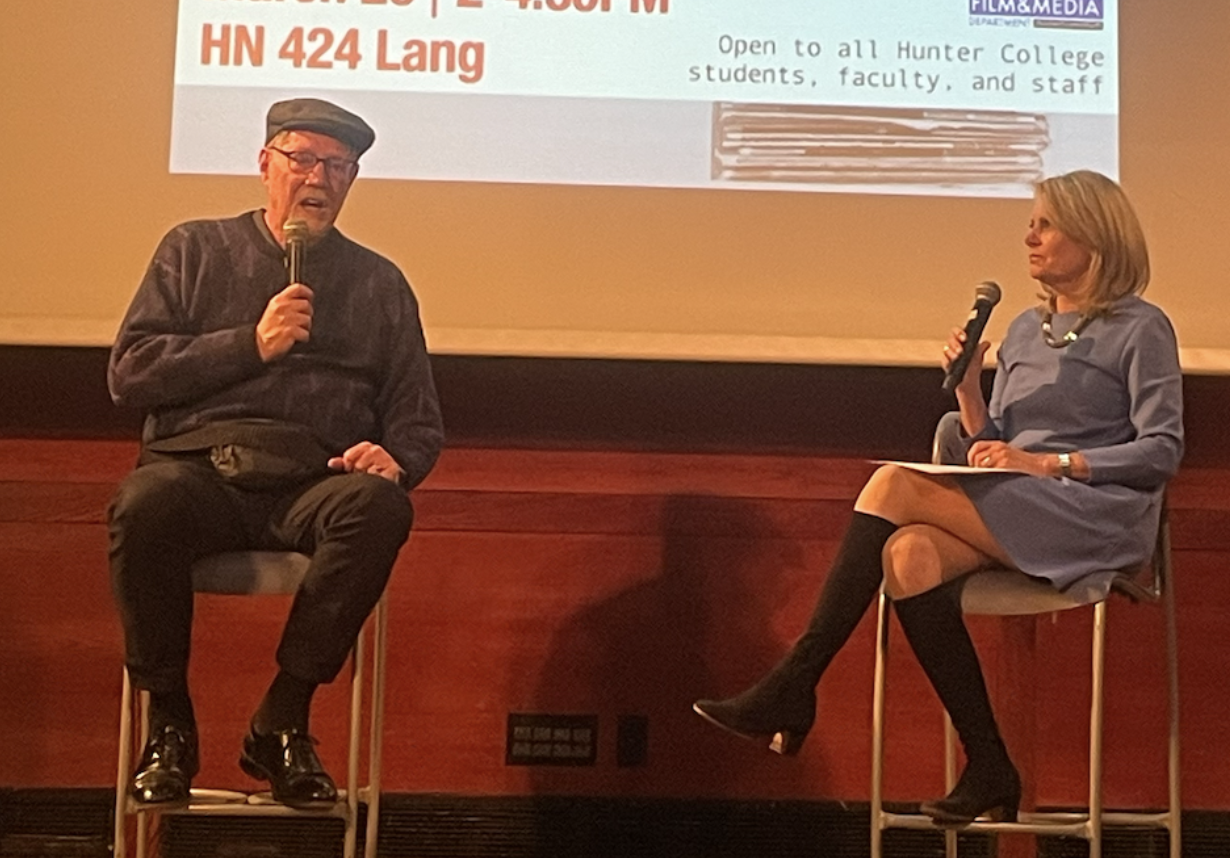
Most of the seats at Hunter College’s Lang Hall were full last Tuesday afternoon for a screening of two-time Academy Award nominee Rick Goldsmith’s latest film, “Stripped for Parts: American Journalism on the Brink,” which takes a close look at a hedge fund that is plundering newspapers nationwide and the journalists who are fighting back.
Not only did Goldsmith’s lifelong love for newspapers inspire him to make the film, but when he heard what was happening at the Denver Post, he knew he had to jump into action.
In 2018, 10 opinion pieces were featured in the Denver Post’s Sunday edition that told readers that the New York-based hedge fund Alden Global Capital was destroying the newspaper and its ability to cover local news. This led to what is known as the Denver Rebellion, where Post employees held an open revolt against the hedge fund.
The film also covers how Alden Global bought numerous newspapers and enterprises. One newspaper the documentary focused on is the East Bay Times, and how Alden Global ordered many layoffs a week after they won a Pulitzer Prize for their coverage of the Oakland Ghost Ship fire.
“I liked this documentary because it achieved its purpose and that was to show how a hedge fund decimated local newspapers around the country by stripping them of their assets and leaving the newspapers with only a skeleton of their former selves,” said Walter Weis, a Journalism major. “My main takeaway as a Journalism student was that getting to the truth takes hard work, endurance, and capital to back you up.”
During the Q&A discussion following the screening, which was moderated by Distinguished Professor and Director of the Journalism Program Sissel McCarthy, the audience, mainly Journalism and Documentary Production students, had a host of questions.
Goldsmith told McCarthy that narrowing down the story to focus on Alden Global helped make sure the story wasn’t all over the place. Goldsmith knew he was on a mission to save journalism, but found himself trying to cover too much. He also found himself in many rabbit holes due to the amount of articles he and his team had to read.
“By the time we finished, we were somewhere between 1,500 and 2,000 articles, and a lot of them had to do with hedge funds and journalism and other ways that journalism was failing,” said Goldsmith. “I felt that we had to read all those articles and at least consider what they were doing.
Goldsmith said he faced many setbacks and losses during the five-and-a-half-year production period.
“Just as we got involved in the story, which was about a month-and-a-half after the Denver Rebellion, Alden Global Capital understood they were getting bad publicity,” said Goldsmith. “As I approached the Denver Post, the East Bay Times for access to their newsroom, the local people were very sympathetic to doing that, but they heard from corporate that it’s not going to happen.”
In addition, COVID-19 hit during the film’s production, which caused money to dry up since the film’s funding came from philanthropy funding. From 2020 to 2022, Goldsmith and his team did crowdfunding, which brought them closer to their end goal. A lot of the film’s staff had to be let go, which gave Goldsmith and his remaining team more work.
Despite these challenges, Goldsmith got the journalists at the Denver Post to trust him. The journalists were furious, but passionate, he said.
Goldsmith said Alden Global has not contacted him in response to the film, which has won a handful of awards across a few film festivals.

The film maker told the audience he believes all physical newspapers- except national newspapers- will disappear in the next five years because of the amount of money that goes into printing them.
Goldsmith advised the young students in the crowd to support local news, be aware of what is happening, and familiarize themselves with the New York State Local Journalism Sustainability Act, which looks to provide support for local news organizations that employ local journalists. If it becomes law, tax credits will also be awarded to taxpayers subscribed to local news outlets. Despite 60 percent fewer journalists operating today than 20 years ago, Goldsmith told the aspiring journalists in the crowd to continue working towards their dreams.
“That journalism gene, that DNA is going to push through so I encourage any of you out here don’t give up your dreams,” said Goldsmith. “You’re going to be the ones that figure out how to keep journalism going in this country and benefit the rest of us.”
One non-journalism student said he was captivated by the whole story.
“Although I major in computer science, I thought it was pretty interesting,” said junior Chris Happel. “The film shows how journalism is going downhill and starting to die down.”

